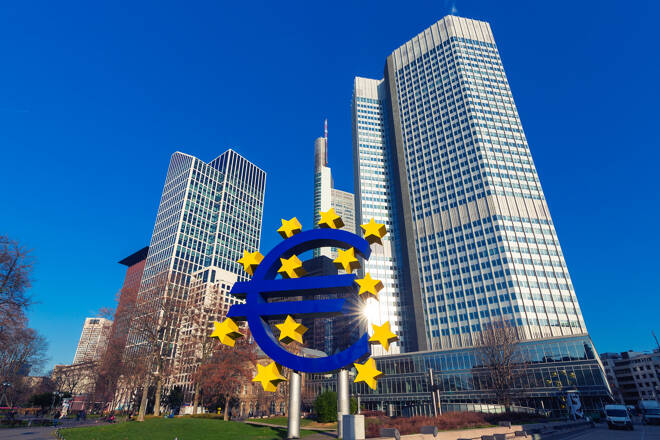Advertisement
Advertisement
Central Banks: The Market’s Life Buoy
By:
The traditionally slow month of August has been very tough for traders so far this year.
A lot of uncertainty has been surrounding financial markets and forex markets lately as investors’ minds kept flipping between new developments on the U.S-China trade saga, worrying signs of a coming recession, the Brexit drama, Italy’s political turmoil and the latest round of corporate earnings. All of these topics have strongly heckled market sentiment this summer and traders are now relying on central banks to sustain the economy and bring some peace to an unstable trading environment. However, many questions remain: what can central banks really do? Are the European Central Bank (ECB) and the Federal Reserve (FED) on the same page? What can we expect from the next Jackson Hole meeting?
Risk appetite was strong at the beginning of the year but those times seem far away now. The rally observed on stocks during the first half of 2019 was mainly built on hopes of a trade war resolution between the world’s two largest economies but we are now at the end of August and the relationship between the two blocs doesn’t seem to have improved: the chances are low that a deal acceptable to both parties will be reached anytime soon.
Furthermore, investors are now having to deal with the growing number of negative effects this trade war has already had on both nations: U.S. GDP has slowed to an annualised rate of 2.1% in the second quarter while China has seen a significant slowdown in exports as well as in factory output after industrial production hit a 17-year low in July. On top of this, the trade war has also had a negative impact on other countries: Germany’s GDP slumped by 0.1% in the second quarter, Brazil has seen slower demand from China for raw materials and expect weaker exports to the U.S. while British factories continue to suffer from weaker demand (even though Brexit is also partially to blame for this).
The only remaining bullish leverage on stock markets comes from monetary policy adjustments from central banks, especially from the FED. Market sentiment has already been boosted at beginning of July when both the ECB and the FED showed surprising dovish turns by saying they will “act as appropriate” to sustain the economy. Since then the Federal Reserve has already started cutting refinancing rates by 25 basis points while the ECB recently provided investors with more hints about a September stimulus.
What to expect from the next central banks meetings?
Even if recession risks are piling up, central banks seem to be willing to do whatever it takes to prevent such an outcome. A string of poor economic data recently has not had a major impact on stock prices so far as financial markets are artificially supported by hopes of further stimulus. Investors have now all eyes on the next FED and ECB meetings with a specific attention to what is going to happen during the Jackson Hole event later in the week.
While World Interest Rate Probability shows further cuts are already priced in by the market, traders will pay attention to the semantic and the tone used by Jerome Powell and Mario Draghi during the next meetings, especially after the FED’s Chairman said in July that current cuts were to be part of a “mid-term adjustment policy”, rather than of a new dovish cycle.
FED vs ECB
The situation may actually be gloomier for the eurozone than for the U.S. as refinancing rates are still in negative territory in the old continent (-0.40). The FED, on the other hand, provided itself with more flexibility to react to any downturn of the economy by proceeding with a new rate hike cycle back in 2016. However, the ECB has other weapons to use in order to sustain the euro area and the central bank is said to be already working on a “very strong package” of stimulus measures (including rate cuts and bond purchases) to support the domestic economy.
Having said that, there is a high chance that this week’s Jackson Hole meeting will be a non-event, bringing market volatility but no clear direction for prices. September though, is expected to be a decisive month for central banks as their new sets of measures for the end of 2019 will be announced while most investors will be back to their trading desks after a much-deserved summer break.
Pierre Veyret– Technical analyst, ActivTrades
About the Author
Pierre Veyretcontributor
Pierre Veyret has been a Technical Analyst at ActivTrades since 2014. Through this role, he has been working with UK and French newspapers (Sunday Times, Les Echos , City AM, TV Finance, BFM Bourse)
Advertisement
